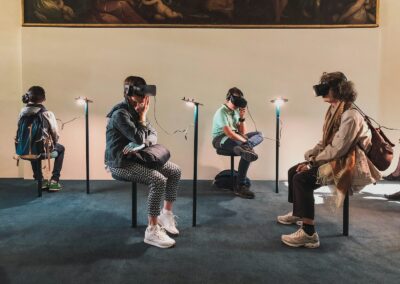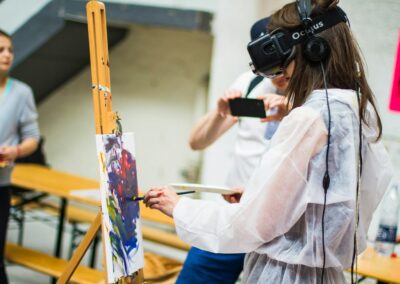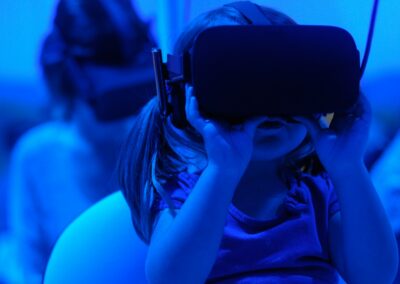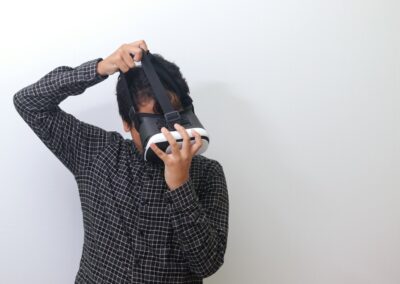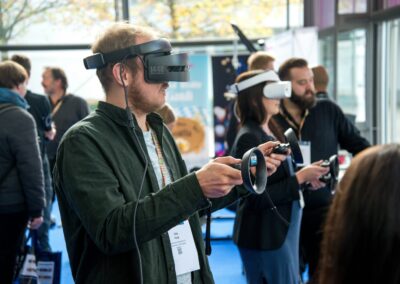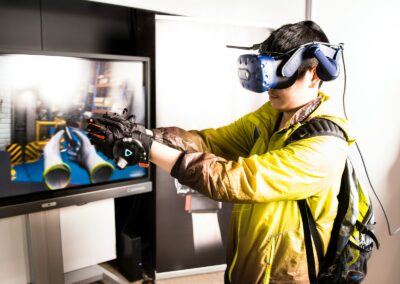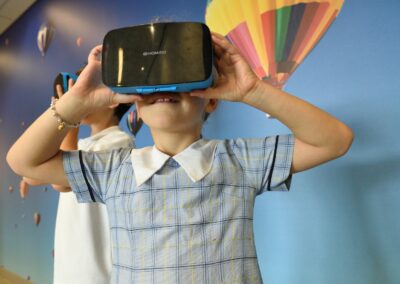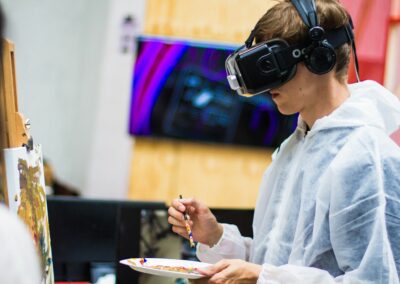Addressing Mental Health Challenges in the Age of Virtual Reality
The Rise of Virtual Environments and Their Psychological Impact
The integration of virtual environments in everyday life is transforming how we interact, learn, and entertain ourselves. Virtual reality (VR), augmented reality (AR), and the metaverse offer immersive experiences that blur the lines between the physical and digital worlds. In technologically advanced regions like Saudi Arabia and the UAE, where innovation is a cornerstone of economic growth, the adoption of these technologies is rapidly expanding.
Saudi Arabia’s Vision 2030 aims to leverage advanced technologies to diversify the economy and improve the quality of life. Virtual environments play a crucial role in this vision by providing new opportunities for education, healthcare, and business. For example, VR is being used for immersive training programs, virtual tourism, and remote collaboration. However, as these technologies become more integrated into daily life, it is essential to consider their psychological impact on users.
Dubai, known for its ambitious tech initiatives, is also embracing virtual environments. The city’s strategic focus on becoming a global technology hub includes significant investments in the metaverse and VR applications. These virtual environments offer innovative solutions for business meetings, social interactions, and entertainment. However, the psychological consequences of prolonged exposure to virtual environments must be carefully examined to ensure that these technologies enhance, rather than detract from, mental well-being.
Potential Psychological Consequences of Virtual Environments
The immersive nature of virtual environments can have profound psychological effects. One of the primary concerns is the potential for addiction. The engaging and often escapist nature of VR and AR can lead to excessive use, resulting in a dependency that detracts from real-world responsibilities and relationships. This is particularly concerning for younger users, who may be more susceptible to the allure of immersive digital worlds. Addressing this issue requires a balanced approach that includes setting usage limits and promoting healthy digital habits.
Another significant psychological consequence is the blurring of reality. Prolonged exposure to virtual environments can alter users’ perceptions of the real world, leading to a phenomenon known as “derealization.” This condition can cause feelings of detachment from reality and a distorted sense of time and space. In Riyadh and Dubai, where VR applications are increasingly used in various sectors, it is crucial to educate users about the potential for derealization and implement measures to mitigate its effects.
Social isolation is another potential consequence of extensive use of virtual environments. While VR and the metaverse can facilitate virtual social interactions, they may also reduce face-to-face interactions, leading to feelings of loneliness and social disconnection. This is particularly relevant in the context of remote work and virtual meetings, which have become more prevalent in the wake of the COVID-19 pandemic. To combat social isolation, it is essential to encourage a balance between virtual and real-world interactions.
Strategies for Addressing Psychological Consequences
To address the psychological consequences of virtual environments, a comprehensive approach involving policymakers, healthcare professionals, and technology developers is necessary. In Saudi Arabia, the establishment of mental health initiatives that focus on the impact of digital technologies can help mitigate these effects. These initiatives can include public awareness campaigns, educational programs, and support services for individuals experiencing negative psychological effects from virtual environments.
Healthcare professionals in the UAE can play a vital role in addressing the mental health challenges associated with virtual environments. By incorporating VR and AR into therapeutic practices, they can leverage these technologies to provide innovative treatments while monitoring their impact on mental health. For example, VR therapy can be used to treat conditions such as anxiety and PTSD, while also assessing the potential for addiction and derealization.
Technology developers in Riyadh and Dubai must prioritize ethical design principles to ensure that virtual environments promote mental well-being. This includes implementing features that encourage healthy usage patterns, such as reminders to take breaks and tools for tracking screen time. Additionally, developers can design VR and AR experiences that foster positive social interactions and community building, reducing the risk of social isolation.
Conclusion
The potential psychological consequences of experiencing reality through virtual environments are significant and multifaceted. By implementing comprehensive strategies that involve public awareness, healthcare support, and ethical technology design, Saudi Arabia and the UAE can harness the benefits of VR and AR while mitigating their negative psychological impacts. Through collaborative efforts and a commitment to mental well-being, these nations can lead the way in creating virtual environments that enhance, rather than detract from, the overall quality of life.
#PsychologicalConsequencesOfVirtualEnvironments #VRMentalHealth #VirtualRealityTherapy #SaudiArabiaTechnology #UAETechInitiatives #RiyadhVRApplications #DubaiMetaverse #AIInVirtualEnvironments #BlockchainInVirtualEnvironments #TheMetaverse #GenerativeAI #BusinessSuccess #LeadershipInTech #ManagementInVirtualReality #ProjectManagementInVR



